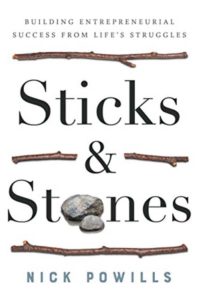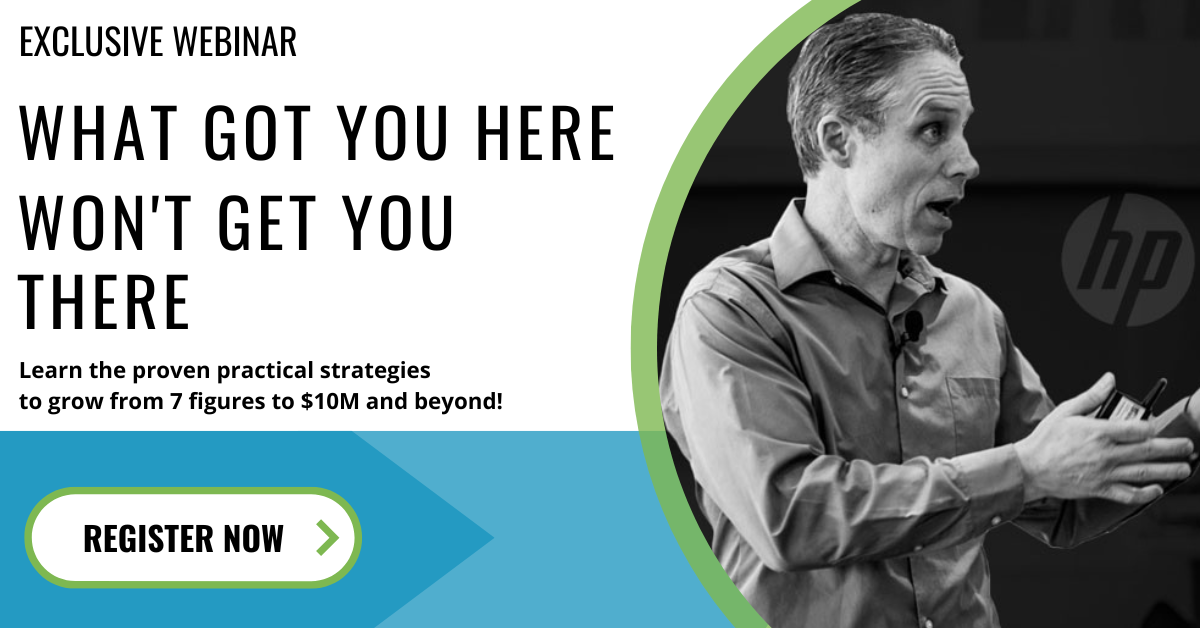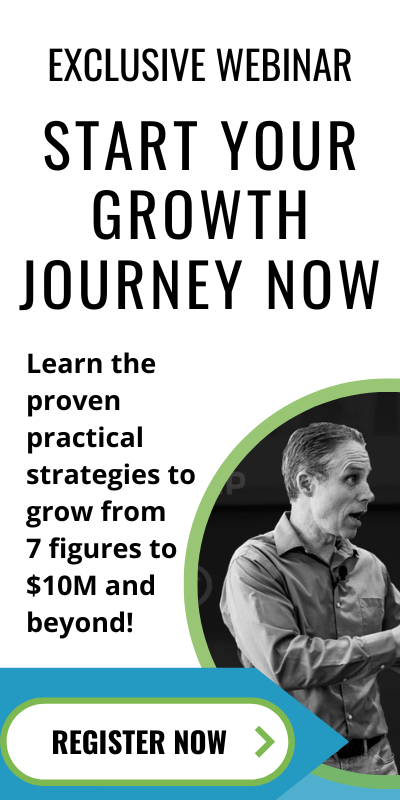Episode 19: The Importance Of Motivation, Culture, And Employee Engagement With Nick Powills
Nick Powills, CFE, founded No Limit Agency in 2008 and served as a chief brand strategist for the Chicago-based firm.
No Limit is a full-service communications agency that establishes and elevates brands by bridging public relations, social media, marketing, advertising, digital, and creativity to best strategize well-rounded and successful campaigns for over a hundred global franchisees’ brands. By presenting visionary ideas and building genuine relationships, No Limit can create effective media branding strategies to help companies grow.
Nick currently leads a staff of writers, media strategists, designers, social media experts, and digital producers in an office think-tank where brands are humanized for solid and compelling media stories.
Powills founded 1851 Franchise and ESTATENVY, two content marketing publications and platforms.
Prior to starting No Limit at the age of twenty-seven, Nick spent three years working at a PR agency. He mastered the art of building rapport with media outlets and creating newsworthy pitches for earned media placements. He holds a bachelor’s degree in journalism from Drake University in Iowa.
What the podcast will teach you:
- Why did Nick’s book, Sticks & Stones, take five years of the challenge to write, and what benefit Nick has received from completing his effort
- How Nick’s book demonstrates that being told you aren’t good enough or can’t do something can serve as a powerful motivation to help you achieve your goals
- How Nick’s company, No Limit Agency, has managed the impressive feat of being on the Inc 5000 list of fastest-growing companies six times
- Why not investing in human resources, recruitment, and company culture was a mistake Nick made and a valuable lesson he learned
- What challenges do Nick and his team face after crossing the $1 million in revenue mark, and how do they work to overcome those challenges?
- Why the business leadership is often at the core of the problems the company is facing, and why it falls to the business leader to make the necessary changes
- Why it is important to understand that the level of employee commitment will vary throughout your company
- Looking for small wins every day can help you overcome mindset obstacles that are holding your company back.
- What steps No Limit Agency has taken to help employees feel more engaged, fulfilled, and appreciated for their work
Resources:
- Website: stickstonesoar.com
- Website: nolimitagency.com
- Website: https://1851franchise.com/
- Sticks & Stones by Nick Powills
- LinkedIn: www.linkedin.com/in/powills/
—
I’m excited to have Nick Powills here with me. I’m going to introduce him a little more formally, but I appreciate him making time. Nick is an author. In addition to being a business owner, he is the Founder of No Limit Agency. In fact, if you’re one of those people who want to go and look it up while you’re reading, it’s NoLimitAgency.com. That’s where you can find out more about Nick’s business. We’re going to talk about it here in a little bit.
He’s also an author of Sticks and Stones: Building Entrepreneurial Success From Life Struggles. As Nick is coming to learn about this podcast and our audience, we have a bunch of seven-figure business owners who read about real business owners like them. Nick, you’re one of them and we’re excited to learn from some of your life struggles and how you’ve turned that into entrepreneurial success. Welcome to our show.
Brett, I appreciate you having me on.
I’m excited to learn more about that. Let’s go ahead and start with the book here. When did you write the book? How long has it been out?
I had to sigh at the beginning of it because it was not easy. There’s this moment where I’m in the CEO Summit and I’m about halfway through the table. They start going around the table and the first guy goes, “I’m so and so.” They’re like, “What book would you recommend?” He goes, “I would recommend my own book.” The next guy goes, “I would recommend my own book.” My buddy who was sitting next to me runs a fairly large company and he pokes me on the side and goes, “Are you going to tell them that you wrote a book, too?” I was like, “No. I don’t want to announce it now.”
It’s interesting because the value of writing a book has changed vastly over the years. I went through the pain of writing and I didn’t hire a ghostwriter. I was handed an editor who said, “I liked the idea.” “It’s crap. We’re rewriting the whole thing.” I had to go through that. You’re talking about a five-year process to get to a finish line and it’s awesome. Inc. Magazine is the publisher, so I got some authority and who did that. It was one of the hardest things I’ve done and I would consider myself a fairly seasoned writer.
Maybe it’s not sticks and stones. Maybe it’s more huge bats and boulders or something like that to beat you up and get through that. If you’re reading, it’s Sticks and Stones by Nick Powills. Nick Powills is spelled differently than I’m used to seeing. Am I saying it right?
You are one of the few that can say it correctly. They picked a name that no one else in the world has. You can google Powills and find nobody else other than my small little family.
It’s Powills. That’s how you can find Nick. You wrote this book and it sounds like a lot of business owners you know or you hang out with have written books. That’s a thing to do. Sometimes it’s felt that way over the years. You got to write your book, but what did it do for you? This isn’t the topic of our conversation, but I’m curious, what did it do for you to go through that five years of struggle to come out with something that was your creation? How did that feel? What did that do for you personally? What did that do for you personally and for your business?
Part of the book addresses that everybody that has found success has gone through some pain and pain can be on various levels. Tom Brady could say, “It was painful for me to sit there while every team overlooked me six times before the Patriots gave me a shot.” You put that chip on someone’s shoulder, and it motivates them to do incredible things. You can look at anyone like Jordan or Walt Disney.
All pain is motivation. It drives us to keep finding success, reinvent ourselves, and not settle. Click To TweetI went through similar things. I was told that I would never write anything. I wasn’t a good enough writer. Every time I heard that, it gave me the motivation to keep writing it. The formula in the book is that you take the foundation you ever shot to get to momentum with your idea when you start realizing and leveraging the fuel that that painful moment gives you. When you get to velocity, these brick walls come in front of you and it doesn’t stop.
Even though I cross apply that to primarily losing weight and building a business, the same can be true for the book. I had plenty of people who told me that I would never do it and that I wasn’t a good enough writer. The motivation that that taught me and then reflecting back on what I was able to accomplish was pretty cool. Has it done what I wanted it to do? No. Not yet. I’m not over it, but there are some cool moments like, they ask for your autograph is somewhat surreal.
Having your children as you’re traveling, say, “Dad, there’s your book in the window of the bookstore.” That is pretty surreal. The bigger picture is an accomplishment that it’s another thing that you can muscle through the process of creation and come out on the other side with something that, at least in a moment, can say, “I’m proud of that accomplishment.”
Since I did a horrible job on your bio, I get a chance for a redo here. You said people told you that you weren’t a good enough writer. Was that before or after you went to school to study journalism?
It’s before.
You went to school, to study journalism to become a better writer or maybe to prove that you were a good writer. Also, in your early career, you spent time at a PR agency, where you mastered the art of building rapport with media outlets and creating newsworthy pitches. You were writing newsworthy pitches for earned media placements. That’s pretty awesome for somebody who doesn’t know how to write.
That message, eventually, I’ll take this clip and send it to every journalism professor or teacher that I had that said, “I can’t do it.” Thank you for that. You gave me the clip to send their way. Everybody has this. Everybody has something or a boss that said, “You’re not good enough.” Your parents said, “You’re never going to do X.” Everybody has it. When you end up using it as motivation, then you can accomplish pretty cool things.
I wrote for Rolling Stone and Details Magazine. I worked at a daily newspaper outside of college. Even there, they said I wasn’t good enough to write. I ended up being their lead columnist, which was an exciting gig being a young person. I started a music magazine. I run a magazine now. It’s still there. The demons are also heavily involved in the motivation that drives me to do what I do today.
You use all of that doubt, adversity, or whatever other people are saying to you to fuel your drive and your determination to go make things happen. That’s a pretty great characteristic that you have and it’s served you well, not because you’ve written a book and started a company. The reason that I took note of who Nick Powills was is because you were recognized as one of the Inc. 5000’s fastest growing companies in America. Did I get that right?
We were at six times now. It’s rare, but all that stuff is motivation and it drives us to keep finding success to reinvent ourselves and not to settle.
It’s an accomplishment to get on that list once. To get on there 2 or 3 times is rare and to be on there 6 times is super rare. I know because I spent time at a company where we did the same thing at Infusionsoft, which is now called Keep for anybody who might be reading who recognizes that name. We went on that journey as well.
I know exactly what it’s like to do that growth over and over again and that’s exactly why you’re here on the show. Thank you for being on our podcast. Let’s dive into what you learned. This is focused on people who have achieved that first $1 million in revenue and now they’re still trying to grow and they start to bump into some new challenges.
Having been there yourself, reflect back on when you crossed over. It might not be the precise point that you crossed over $1 million in revenue but somewhere between $1 million and $3 million in revenue. Typically, the companies we work with start to hit new challenges they hadn’t faced prior to that point. Could you talk about some of those challenges and then we’ll hopefully get into some of the practical things you’ve done that have helped you.
There’s one that’s been top of mind transparently. We battled through one turnover and as I look back at the history of our company, I can pinpoint one of the mistakes that I made and that’s not investing in HR, recruitment, or people and culture as a department. My viewpoint as a business owner was unless you can affect the bottom line, or the top line, then I’m not going to make that investment yet. I was like, “I’m going to keep pushing it off.”
2019 was the first year that we made the decision that we were going to invest in this department. On paper, it sounds like they are not going to go out there and drive new business, but the reality is, your business is only going to be as good as the people that you bring into it. The whole case study, to me and how I looked at the business, is fascinating. I would advise everyone. My wife was adamant about how we needed an HR department. I would say, “I don’t think they’re going to drive our business. It can’t impact,” but they do.
“It’s just expense.” Sometimes we think that as business owners. It’s like, “I can’t see the connection to ROI,” but it sounds like you learned something about that along the way.
We’ve had two people in that position. We did not perfect it with the first hire. The second hire has gone smoothly, but that person is responsible for bringing in great talent and keeping them happy. In the marketplace nowadays, it’s very easy for folks to get another job . It is completely swung into an employee market that when you as a business owner can realize that the flows that you’re going to go through are going to swing where employers are at top of the world.
It’s going to swing to the employees who are at the top of the world. If you can make your business play somewhere in the middle so that those swings don’t affect your business from a talent standpoint, that will ultimately have great benefit on your company. Had I thought about that earlier? It may have changed the projections. We may have been growing at a different pace. We’ve had a great story, but if I look back, that’s an error in judgment by the CEO.
It takes a humble CEO to acknowledge an error in judgment and we all make them. We all make mistakes along the way in this journey, but sometimes we make different mistakes from other CEOs. When we can learn from each other, all the better. Everybody reading this episode can benefit from the fact that you realized, thankfully, you did realize eventually that investing in people was of sound investment for your business, not a necessary evil from an expense standpoint.
It’s an important lesson for us to learn.
Your business will only be as good as the people you bring into it. Click To TweetThat’s a great one because we have the similarity of coming from organizations that grew quickly. When I look back on our experience, I always tell the two things I would have done differently. The first one is that I would have protected the front door with my life. Meaning, even though we knew to hire for fit and wanted to preserve our culture by who we brought in, we still had a hiring volume at some point that overwhelmed us. We need to add all these people. We added 200 people in one year and we let some of the wrong people in, and it was so damaging.
To your point about how influential the people are in your business, that’s right in line with one of the key lessons learned. The other one was that the best time to start developing leaders for your future leader needs is yesterday. It already happened or it already passed. You’ve got to make sure you bring the right people in and only the right people and then you’ve got to develop leaders as quickly as possible because your business taps out at the level of your combined leadership capability.
If you don’t have it in the building, in the company, if you’re a distributed team of some sort, you can’t outgrow your leadership capacity. Those were a couple of key takeaways for me that I didn’t plan on sharing. I’m sorry to hog up some time here. What else did you run into, Nick? As you crossed that $1 million mark? What other bumps in the road did you come across?
Part of our job and what we deliver back to the client is assessing their businesses and giving them a roadmap to succeed. I’m 100% at fault for this. I am pretty good at advising businesses on, “This is the pathway you’re going to take to find success.” I do that. We worked primarily with franchise brands. Typically, it’s fairly easy. Are your franchisees making money? No. Now we have that hurdle. If they’re not going to validate, good luck.
Validation is critical. Can we define the why you, why now in your product? Can we establish why anybody would buy that brand and why they would buy it now? No. That’s a challenge we have to overcome. From a leadership standpoint, do people believe in you? Do they follow you? Do they want to work hard for you as a leadership team so that when you bring in, in our case, franchisees into your system, are they buying into that? That’s something we have to look at.
When I look at other businesses, it’s easy for me to come to a conclusion, and 9 out of 10 times, it’s like, “Go look in the mirror. You’re going to see all the problems that your business is facing right there.” That has been hard for me to do the same with our company. I’m awful at pausing, looking around, and saying, “We’re in the Prudential building overlooking The Bean in downtown Chicago. We have 40 people that work for us.” That’s an accomplishment.
I’m not considering that accomplishment. I’m looking at what’s happening 3 or 5 years from now and how we get to that next level. I am at fault for not pausing and smelling the roses, but I’ll tell you, if businesses want to identify the issue, it’s probably them. It’s the leader. It’s the leader saying, “I’m going to skimp on salaries. I’m not going to pay market value. I’m going to not hire the right people. I’m not going to invest in marketing or advertising to get the job done.”
“I’m not going to build my business coin operated, so people are irrelevant that you’re falling into an operational system.” It’s there. The blueprint is there. Every business book probably touches on all this, but at some point, the challenge is one, can you look in the mirror, and two, can you take constructive feedback from the people that are around you? If you can’t do either of those, it might be time to sell your business. You might not be the right person to get your business to the next level.
That’s extremely insightful, Nick. I don’t know if 9 times out of 10 is the word I’m looking for. You’re the writer, not me. I don’t know if 9 times out of 10 is an exaggeration. That’s what I’m looking for, but it is frequently the case. The vast majority of the time, the real problem with the business that’s stuck is looking right in the mirror at him or herself. It’s like, “It’s me. I’ve got to change the way that I lead people to a different outcome.”
A lot of times, we see the weight of the business on our shoulders and us alone. We feel like, “I’ve got to tackle this. Nobody else is going to do it.” We may hire people, but then we don’t fully carve out clear ownership of outcomes or activities that I can hand to somebody with accountability. We don’t do it in a clear way that is aligned. All of a sudden, we wonder why it’s not working. It’s all on us to go make the changes that we need to make.

Employee Engagement: Can you look in the mirror? Can you take constructive feedback from the people around you? If you can’t do either of those, then it might be time to sell your business. You might not be the right person to get your business to the next level.
I also love that you talked about how it’s not just the look in the mirror moment but then the mentoring moment. Can I look outward to somebody else and be humble enough to say, “I could do some outside perspective.” You do that day in and day out for other companies in the work you guys do for the service you provide, but we sometimes have a hard time inviting others to our shop to give us feedback about how to do it. Well said on both fronts.
I feel like founders, in particular, look at human beings around them and they’re like, “Why are you not hustling as hard as I am?” If you get to the stuck moments and you’re having those feelings, the reality is it’s because those people probably don’t have equity and they don’t make the money that you make. They might be passionate about the job that they have. They may even look at it as a career but when they’re not invited into the business at that level, then they’re not wrong to say, “I’m not going to have the same passion as the founder who creates this founder syndrome.” The blueprint is already there.
If you don’t have a viable product with a point of differentiation and can’t get to the $1 million mark as a milestone, you might not have the business concept that could take off. You should ask around to get an understanding of that. If you hit that mark and you’ve achieved a little bit of success, and you have sustainability and profitability, then some of these blocking and tackling things end up showing their head and can give you guidance into what happens next and what are you supposed to do.
You touched on that concept of people being engaged or not as engaged as the founder. What have you guys done to try to increase the level of engagement with your team? Maybe some of our readers will go, “That’s a great idea.” What are some things you guys have done?
I’m not going to pretend like I’m an expert in this because it’s a work in progress.
You didn’t have the HR person.
I’m as dumb as everybody else. I’m learning this stuff as I go.
We’re real people here sharing real stories. What have you learned?
This has stuck with me. I’ll give two points off of this. One, companies are encouraged to create core values, but if you look at how core values are created, it could be a group discussion, but typically, it’s led by the founder or the CEO. The CEO or founder ends up guiding the process of how these things are created. It’s no different in our company. Our first three is a culture of respect. I’m going to apologize for saying this, but the second one is to give a crap, and the third one is anything is possible.
Those three things were built off of, I had three leaders who I found their gaps and said, “This is what’s missing from you guys. In order for us to be a well-oiled machine, this is what I need out of you,” and we made them our core values. Flash forward, we’re starting to call them almost core fundamentals. Yes, we need to judge those three and now we have killer everything. We’re proud of the creative that comes out of concierge-level service.
Nine out of 10 times, when you go look in the mirror, you will see all the problems your business is facing right there. Click To TweetWe take those five core fundamentals and say, “When we’re hiring new people, how do people fit into those?” When we’re evaluating our current staff, how do they fit into it? There’s a mistake when they establish those values because values are more controlled by individuals than by companies. It’s hard to say, “Follow our core values.” It’s like, “Not everybody has that DNA.” It’s coming to an understanding that DNA and people are going to be different. The level of commitment they have to the business has been a good journey for our company.
The other thing is, as a human being, I’ve always been chasing what equals happiness and I haven’t pivoted from that mindset, but the reality is I don’t know what’s going to happen tomorrow and I can’t control what happened yesterday. You can only control within the moment. Finding content or satisfaction on a daily basis could end up helping to lead to happiness.
On the journey to finding success in business, you’re going to have lonely moments, and you’re going to feel like you’ve been punched in the gut. When you lose business, nobody’s going to feel worse than you at the top. You’re guaranteed to go through these feelings, but when you can find those small wins every day, it will help you find the motivation to kick butt tomorrow.
Back to the values discussion. Since we’ve only met, a core piece of what we do to help people is to help them clear on that because absent the equity stake that you talked about, our people don’t have ownership most of the time. There are some companies who offer stock options or there is an opportunity for people to own. The vast majority of people reading this are the owner. They own it outright, or they have 1 partner or maybe 2 but most people on the team don’t have an ownership stake.
They don’t have skin in the game that way, so the passions have to come from somewhere else. Just like you’ve discovered, values or core operating principles or whatever you end up calling them can go a long way to helping people feel like, “I love being around these people doing this type of work because we do it in a way and that resonates with me or that I enjoy. It feels good.” There’s something to that, especially if you can marry it with a purpose or a passion, that people are like, “We’re doing something meaningful.”
You can get some of it that way, but to the point you made about back to the equity, if you can do something to tie their contribution back into a reward or outcome that they have access to, that’s the way that we’ve tried in the past to bring some of that same level of passion and care to the business. That’s cool, the values.
The second thing you said was happiness. I’m sure you’ve read Tony Hsieh’s Delivering Happiness. He studied that as well. The more we can help our team members feel like, “I’m enjoying life,” whether they call it happiness, contentment, or whatever, that’s great. Along those lines, what have you learned to help people feel more that way? Other than the values and purpose, is there stuff you guys have done to help people feel that way?
When the business was founded, we started it as, “What would a culture look like if we were Google-like?” Google set this perception that the culture is phenomenal. Most businesses can’t afford to have a masseuse and a chef on hand. You find somewhat adjacent concepts. I’ll give you a simple one. We had unlimited PTO when we started. Early on, my first four employees came up and said, “We hate our vacation policy.” I said, “What? It’s unlimited.” This is 2009. They go, “We don’t know how much is too much.”
I said, “No problem. How about you guys write our vacation policy? I don’t care what it is.” It was probably March of 2009. Towards the end of 2009, one of my teammates comes up and she goes, “I’m going to go to Europe for a vacation.” I go, “That’s awesome. When are you going?” She gave me the dates and I go, “In this policy you wrote, you guys are out of vacation time.” She’s like, “That’s unfair.” I’m like, “You wrote the policy.”
She goes, “This is garbage.” I’m like, “When you come to the realization that winning isn’t a thing, but it’s finding the thing that resonates most with your team, that helps make a difference.” Flash forward, we did an engagement/happiness survey with our team. One of the pain points was, for them, it has been student loans.

Employee Engagement: I don’t know what’s going to happen tomorrow. I can’t control what happened yesterday. You can only control what’s in the moment. Finding content or satisfaction on a daily basis could lead to happiness.
We said, “Let’s put together a program that helps solve that so that when they’re looking at their next job, they can least think about us when they’re doing their pros and cons and what we offer.” We launched and it is going into 2019. Depending on your time in the company, you get money right off the bat that is $100 up to $300 a month. That should cover most of your student loans. We engaged in a system that automatically pays it, so they don’t even have to go through the process of paying their student loans.
We decided, “Let’s listen to them, and what they’re saying is important to them and let’s try to create a solution.” There were people that had tears in their eyes. This is clearly a pain point for them and we’re trying to take the steps to solve it. Flash forward to now. We have unlimited PTO because it’s important today, but that doesn’t mean it’s going to be important tomorrow. You, as a founder, know that the culture that is created is not your culture. It’s theirs, so listen to them.
I missed this on the values conversation. You said, “A lot of times, it comes right out of the founder,” but you invite other people to participate. If they get to weigh in on it, they have more buy-in on it. That’s the leadership principle. The more you enroll and involve them, they’re going to be more into whatever it is that you’re creating. Good stuff. Nick, I value the time that you’ve taken.
We said people could go to NoLimitAgency.com, but there are other ways to connect with you and learn more about that. It sounds like you serve franchise companies, more specifically, and we may have some people on here who are part of a franchise company. What is the best way for people to connect with you or learn more about what you do if they’re interested in knowing more?
LinkedIn is an easy way. You type in my name and I’m the only one in the world, so it won’t be hard to find me. We publish an online trade magazine called 1851Franchise.com. I write a column every Thursday that comes out in there and talks about a lot of these same issues. What’s going on culturally with us?
Transparency has always been big with me, sometimes unfiltered, but I’m pretty honest about the crap that we have to deal with as a business with the hope that other people might be able to take something from that or engage in a conversation and say, “Here’s what’s going on in my world.” It’s LinkedIn or reading the columns. If you google my name, you’ll find the good, the bad, and the ugly. It’s all out there.
I find that most of what I would call enlightened founders or enlightened business owners are pretty tuned in to the whole transparency thing. When you can be authentic, your people buy into that. They buy into you as much as they buy into the cause or the purpose of the business, which goes a long way. My hat’s off to you for being that type of leader. My thanks for you coming on and sharing with all of our readers some of the things that you’ve learned in your seven-figure growth journey. I appreciate you being who you are. Thanks, Nick.
Thank you. I appreciate the time.
Thank you for reading this episode of The Elite Entrepreneurs podcast. Please read, share, like, review, and rate it. We appreciate you making time for this every week. We will continue to have great guests like Nick and others who have shared their real-world experiences as they grow their businesses. Keep reading and we will see you again soon.
Important Links
- No Limit Agency
- Sticks and Stones: Building Entrepreneurial Success From Life Struggles
- Delivering Happiness
- LinkedIn – Nick Powills
- 1851Franchise.com
Want to listen to more? View all episodes here >




